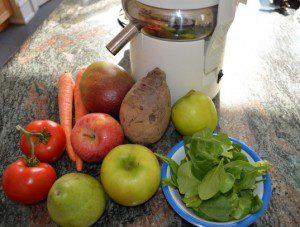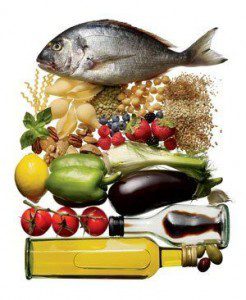by Coach Erik N.
We often think of carbs and fats as being unhealthy. However, in the proper context, carbs and fats both play a crucial role in any athlete’s fight training nutrition regimen. The key is to know when it’s appropriate to eat them, and which kinds of carbs and fats are the best.

Fight Training Nutrition
Fight Training Nutrition: Carbs
Eating carbs before a workout session will make you feel stronger, and enable you to push harder in training. Carbs give us speed during our workouts, and improve mental focus.
Carbs can be consumed during a workout in the form of coconut water or a sports drink. This is usually only necessary if you are working out for more than an hour. If that’s the case, then you need to hydrate with a a drink with carbs or sugar. A shot every 20 minutes will keep blood sugar from going down and reducing speed, mental focus and concentration. Electrolytes found in coconut water and sports drinks help the body absorb and use the water, versus it just flowing through us.
You can still eat carbs after training, but you will want to phase them out the further you get from your workout. While you’re phasing out carbs, you will simultaneously be phasing in fats.
Fight Training Nutrition: Fats
Fats are most beneficial when they are consumed well after your workout, in the latter half of the day. The rule of thumb is, increase your fats as the day slows. On a related note, people have a tendency to snack in the evenings, when they’re relaxing before going to bed. Eating fats has a psychological connection to making us feel satisfied. If we eat healthy fats later in the day, we will be less likely to snack on unhealthy foods before going to sleep.
Animal fat is important for energy utilization. The best animal fats come from animals raised in a “natural” setting (grass-fed beef, for example). The best vegetable fats come from raw, unprocessed sources (nuts, seeds, avocados, etc.).
Trans fats are the ones to avoid. Artificial trans fats (or trans fatty acids) are created in an industrial process that adds hydrogen to liquid vegetable oils to make them more solid. The primary dietary source for trans fats in processed food is “partially hydrogenated oils.” Look for them on the ingredient list on food packages. Luckily, these are generally easy to avoid because they are only found in some processed foods, and they are being phased out in general.
Fat intake depends on caloric intake: 1 gram of carb/protein = 4 calories, 1 gram of fat = 9 calories (i.e. 2000 calories , 20-30% from fat, so 600 calories comes from fat).

Healthy Fats
Fight Training Nutrition: Eating the Right Food at the Right Time
– Right after the workout have something quick like protein powder and juice to send sugar from the blood stream to the muscle
– An hour later have a proper meal consisting of a protein, carb, and healthy fat
– You should be eating proper meals every 3-4 hours
– If you have no more workouts scheduled for the day, decrease your carbs and increase proteins and fats
– Carbs should be eaten around our workouts, fats are for throughout the day
– Most important meals are post-workout. If you don’t like eating right after training start with liquid meals
– Do not eat carbs before sleeping but rather proteins
[If you are in the Portland, OR area and are looking for classes, come check us out at NWFighting.com.]



